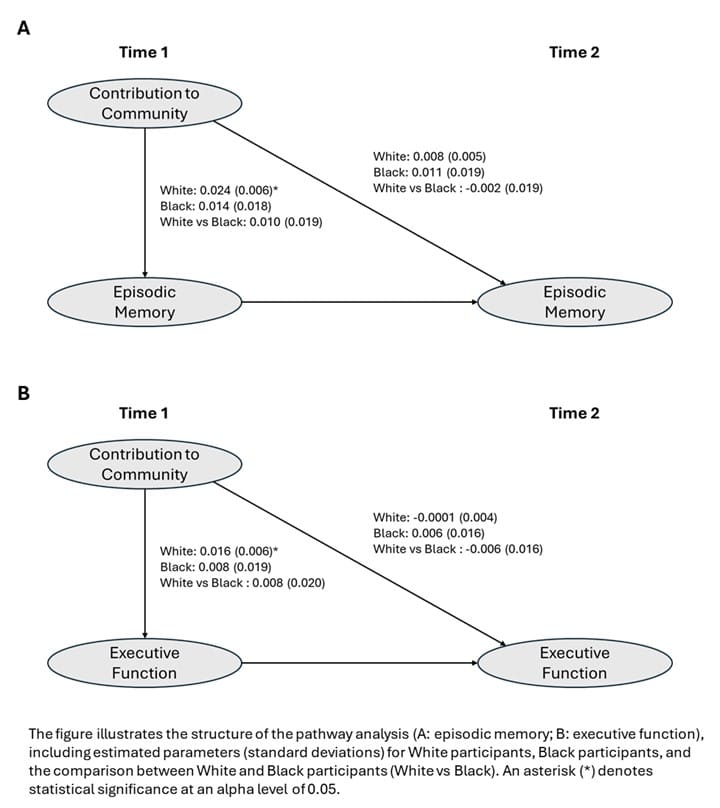Health Disparities
Long Term Effects of Community Involvement on Cognitive Function and Racial Disparities: Findings from the MIDUS Study Yu-Hua Fu* Yu-Hua Fu Josué Almansa Yun-Yi Pan Ruijia Chen Ester Villalonga-Olives
Introduction: Racial disparities in cognitive function between Black and White populations are well-documented, but the role of community involvement in mitigating these disparities remains unclear. This study examines the impact of community involvement on cognitive decline over a 10-year period and investigates potential racial disparities.
Methods: Data were drawn from the Midlife in the United States (MIDUS) study, including the core and Milwaukee samples. The analysis included 1844 White and 196 Black participants followed across two waves: 2004 (wave 1, baseline) and 2013 (wave 2, follow-up). Community involvement was measured with self-reported contributions to community, while cognitive function was measured using standardized scores for episodic memory and executive function. Two path analysis models were fitted to examine the effects of community involvement on cognitive decline (changes in episodic memory and executive function) and to assess race as a moderator, while adjusting for age, sex, education, income, and chronic conditions.
Results: Black participants had lower episodic memory and executive function scores but higher community contributions at baseline compared to White participants. Among White participants, higher community contributions were associated with better episodic memory (β = .024 [95% CI .01~.04)) and executive function (β = .016 [95% CI .01~.03]) at baseline. However, these associations were not observed in Black participants (episodic memory: β = .014 [95% CI -.02~.05]); (executive function: β = .008 [95% CI -.03~.05]). Lower cognitive function scores persisted at wave 2, and baseline community contributions did not predict changes in cognitive scores between waves. No moderating effect of race was observed.
Conclusion: The lack of a moderating effect of race suggests that promoting community involvement alone in Black communities may not address cognitive disparities. Further research is needed to explore other unmeasured factors.

